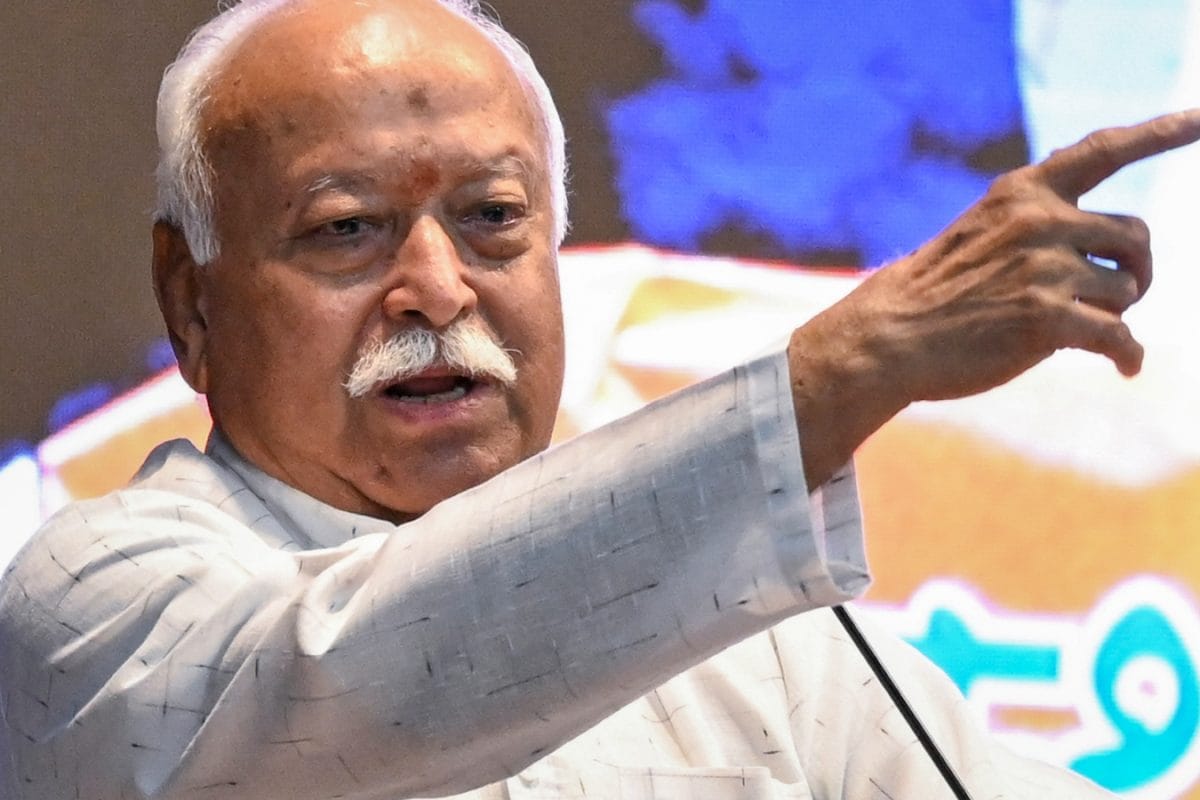

Rashtriya Swayamsevak Sangh (RSS) chief Mohan Bhagwat's recent remark about leaders stepping aside at the age of 75 has reverberated through the Indian political landscape, sparking considerable buzz, especially within the opposition camp. Speaking at a book release event in Nagpur, Bhagwat stated, "When you turn 75, it means you should stop now and make way for others". This comment, made in the context of discussing the views of late RSS ideologue Moropant Pingle, has been widely interpreted as a veiled message directed towards Prime Minister Narendra Modi, who, like Bhagwat himself, will turn 75 this September.
The opposition has seized upon Bhagwat's statement, viewing it as an opportunity to question the implications for Modi's future. Shiv Sena (UBT) Rajya Sabha member Sanjay Raut was quick to draw a parallel between Bhagwat's remark and the alleged sidelining of senior leaders like L.K. Advani, Murli Manohar Joshi, and Jaswant Singh, who were effectively retired from active politics after turning 75. Raut questioned whether Modi would apply the same standard to himself. Congress leader Abhishek Singhvi echoed this sentiment, criticizing what he sees as a double standard, pointing to the "compulsory retirement" of the Margdarshak Mandal while suggesting that the current leadership might be exempt from such a rule.
Bhagwat's comment has stirred speculation about potential leadership transitions within the ruling Bharatiya Janata Party (BJP) and the larger Sangh Parivar. Some political analysts suggest that the RSS chief's statement could be an attempt by the organization to exert greater control over the BJP. Others believe that it is a general observation about the importance of timely transitions and allowing fresh leadership to emerge. Union Home Minister Amit Shah's recent remarks about exploring natural farming and spirituality post-retirement have also been interpreted in light of this evolving discourse on leadership succession.
However, not everyone believes that Bhagwat's statement signals an impending change at the top. Some RSS insiders have dismissed the possibility of either Bhagwat or Modi stepping down. One former swayamsevak noted that Bhagwat had previously indicated that Modi would be an exception to the 75-year norm. A senior BJP leader suggested that if Bhagwat intended to send a specific message to Modi, he would have done so privately rather than in a public address. Maharashtra Chief Minister Devendra Fadnavis has also dismissed claims about Modi's retirement, stating that he will continue in his role until 2029.
The BJP has officially downplayed the significance of Bhagwat's remark, calling it a "general observation" rather than a directive. The party has also denied previous claims made by Raut about Modi's visit to the RSS headquarters in March being related to discussions about his potential retirement. Union Home Minister Amit Shah had previously clarified that there is no retirement clause in the BJP's constitution.
Despite the BJP's attempts to downplay the issue, Bhagwat's comment has undoubtedly ignited a debate about leadership transitions and the role of age in politics. As both Bhagwat and Modi approach their 75th birthdays in September, the coming months are likely to see continued speculation and discussion about the future direction of the BJP and the Sangh Parivar. The incident highlights the complex interplay between the RSS and the BJP, and how statements from the RSS leadership can have significant political ramifications.